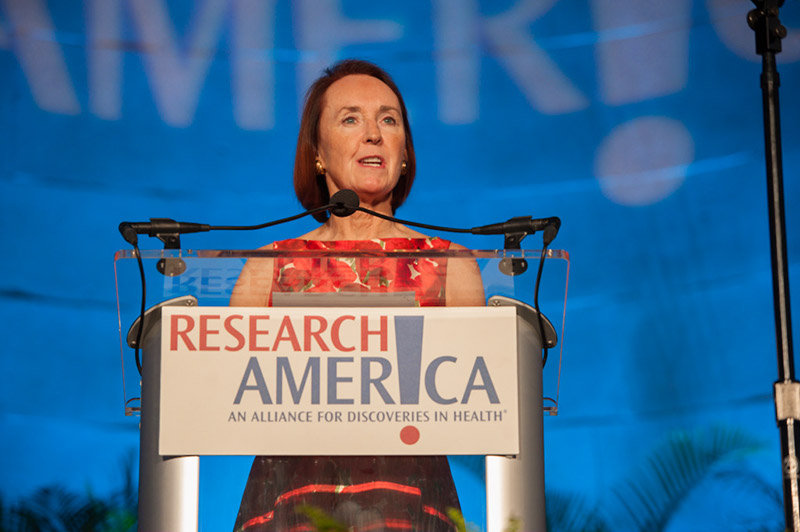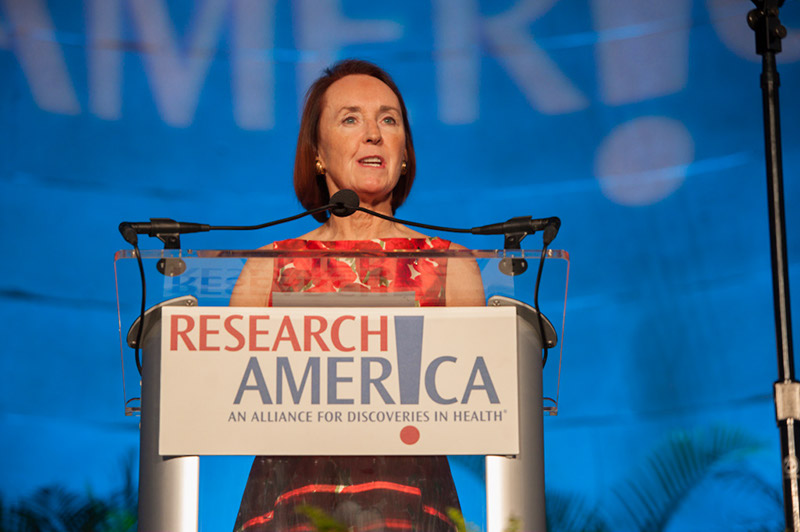Honoring Advocacy


Dear Research Advocate,
Today, we announced several of the extraordinary leaders in medical and health research advocacy who will be honored during our 2020 Advocacy Awards Dinner. Dr. Bruce Alberts, former president of the National Academy of Sciences (among a plethora of distinctions), will receive this year’s John Edward Porter Legacy Award, generously supported by Ann Lurie.
Bruce is just one of the remarkable individuals who will be recognized, as highlighted in today’s release. We will soon announce the recipients of the Isadore Rosenfeld Award for Impact on Public Opinion and the Edwin C. Whitehead Award for Medical Research Advocacy. I hope you will join us on March 11, 2020, to celebrate all of our honorees. For more information and sponsorship opportunities, contact Donna McKelvey at [email protected].
Speaking of exerting leadership in the advocacy arena: there is opportunity — scratch that: there is urgent need — this very moment. Reportedly, lawmakers are preparing another Continuing Resolution (CR) that would not just delay final FY20 appropriations but could freeze current funding in place until February 2020 or later.
As I detailed last week, CRs are short-term (or mid-term) fixes that do long-term damage, stalling progress and battering morale. In this case defaulting to a CR means staying, and potentially abandoning, a proposed $2-3 billion boost in NIH funding and potential increases across the federal research funding landscape. Needless to say, research advocates should be the first to make the case against another CR, particularly a months-long CR. Do not sit this one out. Get involved in our #CRsStopProgress campaign, using email and/or Twitter to make the case for completing the 2020 budget and boosting research funding.
A major, cross-institute initiative at NIH highlighted in our Down syndrome fact sheet exemplifies one of the underappreciated attributes of scientific discovery: its benefits don’t dissipate, they multiply. New knowledge seeds more new knowledge and a discovery focused in one area can and often does lead to breakthroughs in another.
In fact, Down syndrome research is a particularly compelling example of this. People with Down syndrome are predisposed to certain diseases, including leukemia and Alzheimer’s disease, yet are highly protected from developing other diseases such as solid tumor cancers and certain heart attacks. Down syndrome research can lead to improved health for those individuals with Down syndrome, as well as for countless other individuals in the U.S. and across the globe. Visit and share our entire fact sheet catalog here.
Another time-sensitive advocacy opportunity/need: securing reauthorization of the Patient-Centered Outcomes Research Institute (PCORI). Late last week, Senators Mark Warner (D-VA), Bill Cassidy (R-LA), Chris Van Hollen (D-MD), and Shelley Moore Capito (R-WV) released a discussion draft of legislation that would reauthorize PCORI for ten years. PCORI’s current authorization expires on November 21, so the next several weeks will be pivotal. For more information and advocacy opportunities, check out the Friends of PCORI Reauthorization website.
This week, the White House announced several of the individuals who will serve on the President’s Council of Advisors on Science and Technology (PCAST), chaired by OSTP Director Kelvin Droegemeier. The press release emphasized that more PCAST nominees, including additional individuals from academia, are proceeding through the clearance process.
Join us tomorrow for our monthly alliance member meeting. Be ready to share your thoughts about 21st Century Cures: your perspective on the impact of the bill and thoughts on what should be included in 21st Century Cures “2.0” legislation. While the room is at capacity, join us by phone by contacting Jacqueline Lagoy at ([email protected]).
Sincerely,
Mary Woolley
|
|




